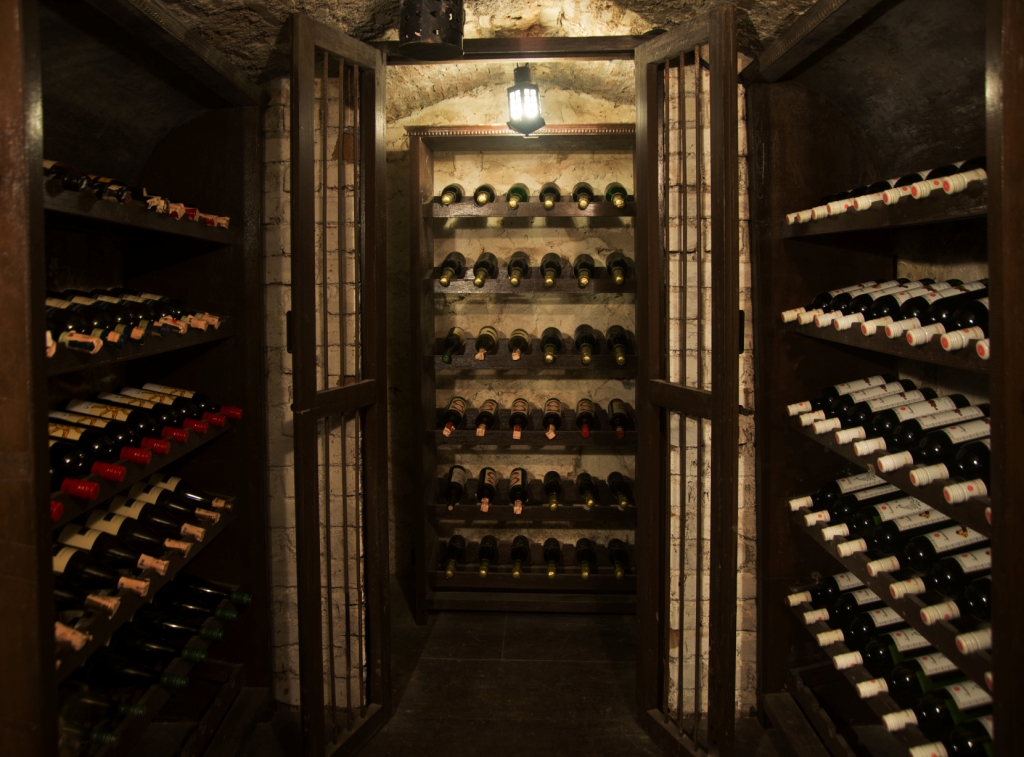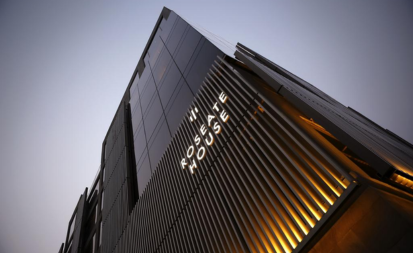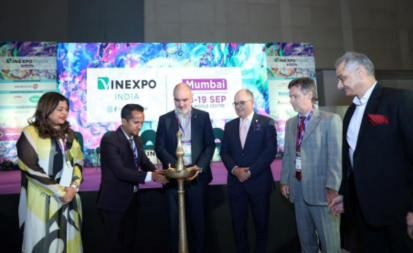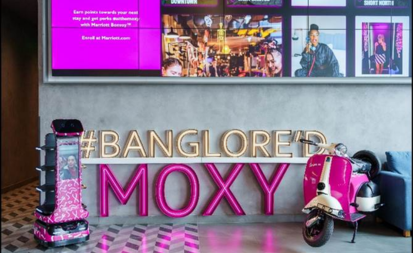Wine Tourism offers a Unique Blend of Culture
Biswajit Biswas, General manager, Fort JadhavGADH, Pune Major factors behind the growth of wine tourism in India? Wine tourism in India, a topic worth exploring. The growth of wine tourism in India can be attributed to several

Biswajit Biswas, General manager, Fort JadhavGADH, Pune
Major factors behind the growth of wine tourism in India?
Wine tourism in India, a topic worth exploring. The growth of wine tourism in India can be attributed to several key factors. Allow me to shed some light on them:
Increasing Interest in Wine: Over the past decade, there has been a significant increase in the consumption of wine in India. As people become more aware of different varieties and appreciate the taste and culture of wine, it has led to a growing interest in wine tourism.
Rise of Wine Industry: India has witnessed a surge in wine production and the establishment of wineries across the country. This growth has created opportunities for wine enthusiasts to visit vineyards, participate in the wine tasting and also learn about the winemaking process, thereby promoting wine tourism.
Cultural and Gastronomical Appeal: Wine tourism offers a unique blend of culture, gastronomy and relaxation. Visitors can immerse themselves in the rich traditions and history of winemaking, indulge in wine and food pairings and enjoy the serene ambience of vineyards, making it an attractive tourist experience.
Government Support: The Indian government has recognized the potential of wine tourism and has taken initiatives to promote it. This includes relaxing regulations, providing financial incentives and organizing wine festivals and events, all of which have contributed to the growth of wine tourism.
Growing Disposable Income: With a rising middle class and increasing disposable income, more people in India have the financial means to explore new experiences and indulge in luxury activities like wine tourism.
Unique Wine Regions: India is home to diverse wine regions, each offering its own distinct characteristics and flavours. From the vineyards of Nashik in Maharashtra to the scenic hills of Himachal Pradesh, these unique wine regions attract tourists who are keen to explore and experience the different terroirs and wines they produce.
Accessibility and Infrastructure: The development of better infrastructure, including improved roads, transportation facilities, and hospitality services, has made it easier for tourists to visit vineyards and wineries across the country, boosting wine tourism.
Social Media and Digital Marketing: The rise of social media platforms and digital marketing has played a significant role in promoting wine tourism in India. Wineries, tour operators, and wine aficionados use these platforms to share their experiences, recommendations, and photos, creating awareness and generating interest among potential visitors.
Overall, the growth of wine tourism in India can be attributed to factors such as increasing interest in wine, the rise of the wine industry, cultural appeal, government support, growing disposable income, improved accessibility and infrastructure, unique wine regions, and the power of social media and digital marketing.
How has the placement/demand of wine in hotels changed over time?
The placement and demand for wine in hotels have undergone significant changes over time. In the past, wine was often considered a luxury item and was primarily offered in high-end hotels and fine dining establishments. However, in recent years, there has been a shift in consumer preferences and a growing interest in wine. As a result, hotels of all categories have started incorporating wine into their offerings.
Hotels now recognize the importance of having a diverse and well curated wine list to cater to the evolving tastes of their guests. This includes offering a range of wines from different regions and price points, as well as providing options for both connoisseurs and casual wine enthusiasts.
Moreover, hotels have also started organizing wine-related events and experiences to enhance the overall guest experience. This can include wine tastings, pairing dinners, vineyard tours, and even wine education programs. These initiatives not only attract wine lovers but also create a unique selling point for hotels.
The demand for wine in hotels has also increased due to the rise of wine tourism. As travelers become more interested in exploring wine regions and vineyards, hotels have capitalized on this trend by providing wine-focused packages and experiences. This has led to a greater demand for wine in hotel bars, restaurants, and room service.
Overall, the placement and demand for wine in hotels have expanded beyond traditional fine dining establishments. Wine has become more accessible and prevalent in hotels of all categories, catering to the growing interest and preferences of travellers.

Wine has become an essential part of the menu in today’s dining experience. What are the key factors in managing and serving the diners’ wine options?
Managing and serving diners’ wine options requires careful consideration and attention to detail. Here are some key factors to consider.
Wine Selection: Curating a diverse and well-rounded wine list is crucial. It should include a variety of wine styles, regions, and price points to cater to different preferences and budgets. Offering both popular and lesser-known wines can provide diners with unique and exciting choices.
Wine Knowledge: Staff should be well-trained and knowledgeable about the wines on the menu. They should be able to provide recommendations, describe wine characteristics, and suggest food pairings. Regular training sessions can help enhance staff expertise.
Food and Wine Pairing: Understanding the principles of food and wine pairing is important to enhance diners’ experience. Providing suggestions on wine pairings with various dishes can help diners make informed choices and enhance their dining experience.
Temperature and Storage: Properly storing and serving wine at the correct temperature is crucial. Investing in temperature-controlled wine storage and ensuring that wines are served at the appropriate temperature can greatly enhance the flavors and aromas.
Presentation and Glassware: Serving wine in appropriate glassware enhances the visual and olfactory experience. Providing different glass options for different wine styles can further elevate the presentation and enjoyment of the wine.
Wine Service: Staff should be trained in proper wine service techniques, including opening bottles, pouring wine, and handling wine accessories such as corkscrews and decanters. Attention to detail in wine service can enhance the overall dining experience.
Wine Events and Tastings: Organizing wine events, tastings, and pairing dinners can engage diners and provide them with a unique and educational experience. These events can showcase the restaurant’s wine offerings and create opportunities for diners to discover new wines.
By considering these factors, managing and serving diners’ wine options can create a memorable and enjoyable dining experience for wine enthusiasts and casual drinkers alike.
According to you, how has the wine industry evolved over time in terms of supply as well as customer demand? How has it been impactful for your brand?
Over time, the wine industry has experienced significant changes in both supply and customer demand. Supply-wise, there has been a proliferation of wine producers worldwide, with new regions emerging and existing ones expanding their production. This has led to a wider variety of wines available in the market, catering to diverse tastes and preferences.
In terms of customer demand, there has been a notable shift towards wine appreciation and consumption. Wine is no longer reserved for special occasions or fine dining establishments; it has become more accessible and integrated into everyday life. Customers now seek out unique and high-quality wines, exploring different grape varieties, styles, and regions.
For our brand, these changes have been impactful in several ways. Firstly, the increased availability of diverse wines allows us to curate an extensive and interesting wine list, catering to the evolving preferences of our customers. This helps us stand out and attract wine enthusiasts who value variety and exploration.
Secondly, the growing interest in wine has created opportunities for us to organize wine events and tastings. These events not only provide an interactive and educational experience for our customers but also serve as a platform to showcase our brand and expertise in the wine industry.
Overall, the evolving wine industry has allowed us to enhance our brand’s reputation as a destination for wine lovers, offering a memorable and enjoyable wine experience for our customers.
At our brand (Hotel, restaurant, or airline), wine plays an essential role in enhancing the overall customer experience. Here are a few ways in which wine contributes to our customer experience?
However, I can provide general insights into how wine can play an essential role in enhancing the customer experience in these industries. Here are a few ways in which wine contributes to our customer experience.
Creating a Memorable Dining Experience: Wine selection and pairing can elevate the dining experience, offering guests a chance to explore different flavours and enhance the taste of their meals.
Enhancing the Ambiance: The presence of a well curated wine list and a knowledgeable sommelier can add sophistication and elegance to the atmosphere, creating a more pleasant and upscale environment for our guests.
Fostering Social Connections: Wine can act as a conversation starter and bring people together, encouraging guests to engage in discussions and create lasting memories during their visit.
Personalizing the Experience: By offering wine tastings, customized wine flights, or sommelier-led experiences, we can cater to the preferences of individual guests, providing them with a personalized and unique experience.
Overall, wine at our brand contributes to a memorable and enjoyable customer experience by offering a diverse selection, providing education and guidance, organizing events, and creating a refined ambiance. We understand the importance of wine in enhancing our customers overall satisfaction and strive to deliver exceptional experiences centered around wine.
—-
 English
English French
French German
German Italian
Italian




